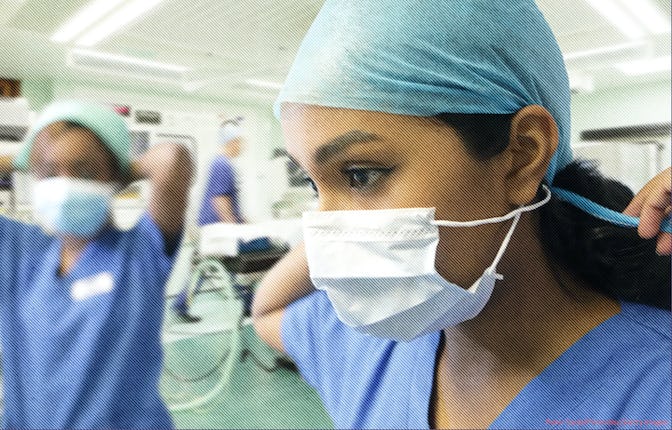What you need to know about BA.2, a.k.a. "Stealth Omicron”
Sure the sub-variant sounds like a Marvel villain, but how worried should we be?

A sub-variant of Omicron called BA.2 is already starting to outpace the original strain of Omicron in some European countries, raising concerns that it will lead to even higher caseloads around the world. The U.K. Health Security Agency just designated BA.2 a “variant under investigation,” which basically means that we know it exists but we’re not sure how dangerous it will be just yet. Trust me, I’m exhausted too, so let’s cut straight to the chase: How worried should we be about this terrifyingly nicknamed “Stealth Omicron”?
The short answer is ‘not very’ — at least not right now. So far, there is no evidence that Stealth Omicron is deadlier than the OG version. In Denmark, where BA.2 is starting to outpace the original strain, the risk of hospitalization is 36% lower now than it was during the Delta wave, according to Fortune. All evidence suggests that our vaccines help prevent severe illness from BA.2 just as they have against other mutations.
So why the scary nickname? Well, when the sub-variant was first discovered in early December, some scientists feared that it eluded detection by PCR tests, which is where the “stealth” bit comes in. But that no longer seems to be the case: Basically, BA.2 is S-gene positive like Delta was, while the original Omicron was S-gene negative, which just means that the sub-variant won’t always be detected as Omicron but will likely still show up on a PCR test, per Forbes. Admittedly, there’s still a lot we don’t know about BA.2 and anything can change — but we’ve always known that this virus is going to keep mutating and so far, this doesn’t seem to be anything out of the ordinary.
When consuming news about BA.2 and other new variants, it’s important to always keep in mind the wider COVID landscape. Omicron cases are going down in some of the hardest-hit states and some experts predict that the pandemic will slow down soon and future waves will keep getting less severe, per the Boston Globe. Unless, of course, a raging new mutation throws everything off again, which is always a possibility. For the time being, though, the good news outweighs the bad: vaccines are still protecting most people from the worst outcomes of COVID and the virus itself seems to be morphing into a less deadly form.